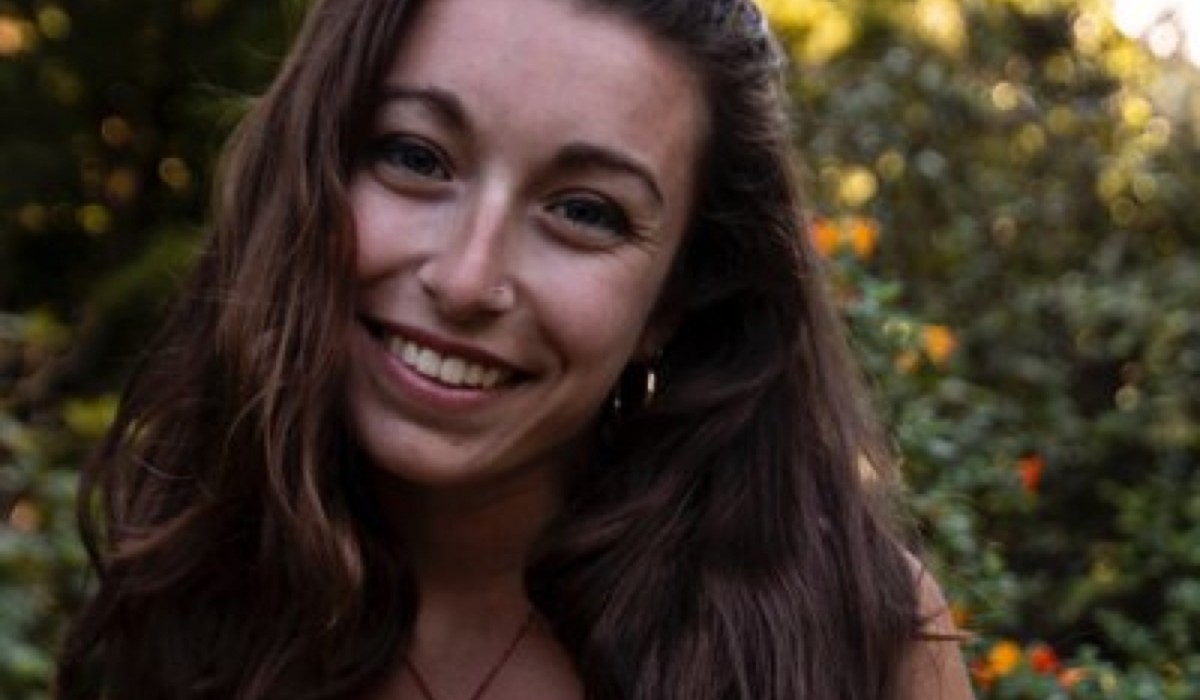Genevieve, Lucy alumna, on working for an organization that advances peace from a feminist, anti-militarist perspective
Genevieve graduated from Lucy in 2018 with an MPhil in World History. She currently works as an associate for the Women, Peace and Security Programme of the Women's International League for Peace and Freedom, a global feminist peace organization. She took the time to talk to our team about her research and her career.
Genevieve studied at Lucy for one year (2017-2018) for her MPhil and says she ‘absolutely loved it’. She made lifelong friends and felt like she had the space to pursue her interests and passions within the beautiful Lucy community. During her time at Lucy, she was the Politics Editor for the Cavendish Chronicle, and also took the opportunity to try out new activities like sailing. She says:
“There is something really special about being in such a vibrant, international community with people who are so passionate about their academic and other interests. I miss Lucy a lot and would love to go back someday if I decide to continue my education further.”
Genevieve double-majored in history and political science for her undergraduate, at McGill University in Canada. She enjoyed studying both subjects, but always preferred history and knew that she wanted to continue studying history in graduate school. Her MPhil research focused on the history of the outsourcing industry in India, from a global history perspective that also engaged with the fields of economic history and the history of technology. She found that the World History MPhil was a great place to do this research because the story she was trying to tell was a transnational one, which also involved events in the United States and elsewhere. Genevieve continues:
“I wanted to center my research in global approaches and within a bigger story of decolonization, "globalization", the shift towards a global neoliberal economic model, the rising power of multinational corporations, and the growth of modern communications technologies. This research may seem quite different from my professional work, but actually, trade, patterns of economic development, inequalities, and the activities of multinational corporations often have many, many links to conflict and instability. Sometimes these factors even lie at the roots of why wars break out.”
Genevieve’s current role allows her to work for an organization that advances peace from a feminist, anti-militarist perspective. She loves the different components of her work, ranging between communications, planning delegations to the UN, research, writing, and supporting the team on other program responsibilities. Like many others, she enjoys being in a job where there is something new every day, and where she has the incredible opportunity to contribute to a global movement to end war and build a peaceful world.
Genevieve tells us:
“Currently, our world is structured in a way that furthers conflict and violence, rather than preventing and ending it. Too many governments prioritize funding militaries and weapons over investing in things like health, education, gender equality, and housing, even though those are actually the things that make us safe. Many stakeholders also ignore the gendered dimensions of conflict and fail to design peace processes that are inclusive and center the needs and priorities of regular people, not warring parties. I think this is why it's so important that there are organizations like WILPF, which advocate from an intersectional feminist perspective and which center the truth that war is not inevitable, but a choice made by leaders who decide to use their power for violence.”
Genevieve says that she feels humbled to get to support the work of a network of thousands of incredible women leaders from around the world who are building peace in their countries and communities. They are at the negotiating table in peace processes, have started grassroots initiatives to reincorporate ex-combatants into society, are working towards disarmament, have created mediators’ networks, and so much more. Many of them do this work despite risks to their personal safety and in an environment of increased repression and threats to civil society. She concludes:
“This is really the highlight of the work for me and it's really an honor to get to meet and work with so many incredible women.”
Genevieve also shares some advice for others considering a similar role:
“This can be a challenging field to get a job in, especially a permanent job, so it may take time, and it's important to apply simultaneously in other fields where you can get transferable skills. Because many NGOs are small, the best candidates are often people who have varied skillsets and can help with a wide range of work. Your research could be really relevant to the work of an NGO, but other candidates may have skills in communications, languages, planning large events, digital campaigning, logistical coordination, and/or grassroots organizing, to name a few, in addition to having that subject expertise. If you don't have skills like these (for example), focus on developing them.”




